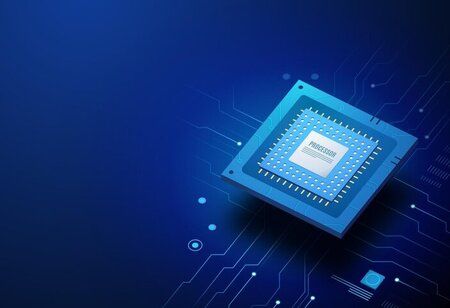
At its Vision presentation, Intel announced a new version of its artificial intelligence (AI) processor in an attempt to challenge Nvidia's hegemony in the semiconductor market, which powers AI. This occurs at the same time as computer companies are searching for a substitute supply of the still-scarce processors required for artificial intelligence.
According to Intel, the Gaudi 3 chip can train some big language models 50% faster than the H100 processor from Nvidia's previous version. For some models that the firm examined, the Gaudi 3 chip can compute generative AI responses—also known as inference—faster than the H100 processors.
According to news agency Reuters, Intel Vice President of Strategy and Product Management Jeni Barovian stated, "Our customers are asking for choice in the industry, first and foremost." They come to us with the expectation that Intel, as the pioneer in computing, will ride the wave of generative AI and provide them with answers. They also seek an approach that is transparent."
As Nvidia is expected to hold around 83% of the data center processor market in 2023, Intel has found it difficult to provide a compelling combination of CPUs and the software required to develop AI apps. Google's bespoke tensor processing units (TPUs), which it does not sell directly, own the majority of the remaining 17% stake.
Two primary CPU units are merged together in Gaudi 3. As a result, it is faster than its predecessor by more than twice. The chip can provide a massive amount of computing power when connected in series with thousands of additional chips.
In the second quarter of this year, server manufacturers like Supermicro and Hewlett Packard Enterprise will have access to the Gaudi 3 processor.

